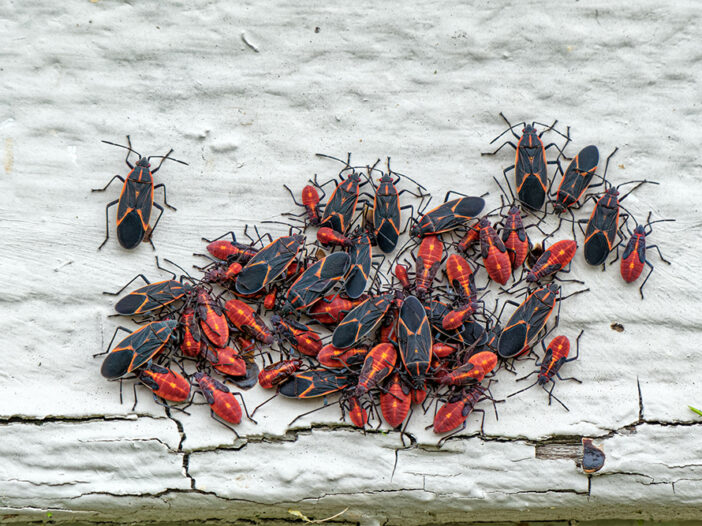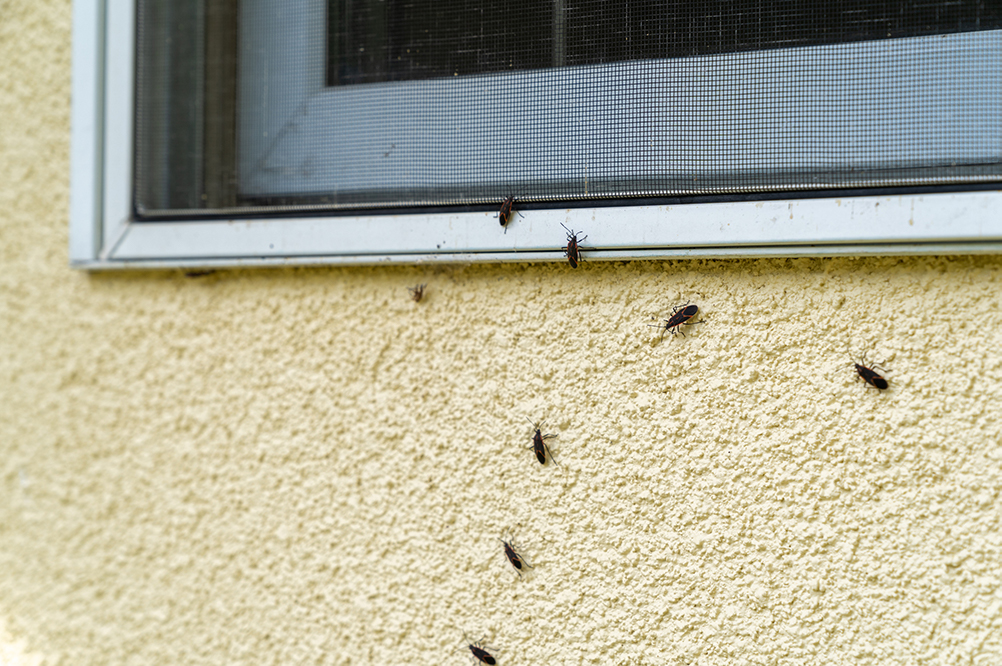
With warmer temperatures and blossoms blooming, spring is a much anticipated time of year for many. However, if you suffer from allergies, spring can be less than perfect. While allergies are often blamed on new growth, did you know there are a variety of bugs that can cause itchy eyes, stuffy noses, and sneezing? At Northwest Pest Control, we are well aware that just as tulips sprout from the ground this time of year, bugs too begin to make an appearance and are often an unwelcome sign of spring.
The most common allergy offenders include bed bugs, cockroaches, dust mites, and the overwintering pest, the boxelder bug. Box elder bugs are small insects that are primarily black with red markings. They are commonly found around box elder trees, as well as other types of maple and ash trees.
While they are mostly harmless to humans and don’t cause structural damage to buildings, in your yard, box elder bugs can feed on the leaves, flowers, and seeds of certain plants, causing damage to ornamental trees and shrubs. If they gather in large numbers outside or venture into your home, they can promote allergies through their droppings or just as they cluster. Proteins from deceased bugs can become airborne and cause your skin to become inflamed and itchy, or can trigger allergic reactions like sneezing, coughing, or itchy eyes and throat.
Not only can boxelder bugs ignite allergies, but when they are crushed or disturbed they can release a foul-smelling odor and leave behind a reddish stain that’s difficult to clean. So do we even need boxelder bugs? In your home, perhaps not, but boxelder bugs do have value for the environment.
Boxelder bugs, despite being considered a nuisance by many due to their habit of invading homes in large numbers, do indeed have value to the environment. Here are a few ways in which they contribute:
Food Source: Boxelder bugs contribute to the food chain. They serve as food for various predators such as birds, spiders, and certain insects, supporting these populations.
Decomposition: Like many insects, boxelder bugs play a role in the decomposition process by breaking down organic matter as they feed on seeds, fallen fruits, and other plant materials. This aids in nutrient recycling within ecosystems.
Pollination: While not primary pollinators like bees or butterflies, boxelder bugs may inadvertently aid in the pollination of certain plants as they move from flower to flower in search of food.
Biodiversity: The presence of boxelder bugs adds to the complexity and resilience of natural systems. They are a part of the ecosystem and play a role in maintaining its health and balance.

Indicator Species: Boxelder bugs can provide valuable information to scientists who study local ecosystems. Changes in populations or behaviors can indicate a shift or imbalance in an ecosystem.
If there’s agreement that boxelder bugs may have some purpose, it still doesn’t mean you want them in your home, making you sneeze. The best solution is to prevent them from entering your home in the first place.
As part of your spring cleaning routine, add the following to keep out the boxelder bugs, and the other critters that crawl up from the ground as the temperatures rise:
- Seal cracks and openings around the outside, especially at entry points such as screen doors and windows;
- Keep basements and crawl spaces well-ventilated and dry;
- Use a water filter vacuum;
- Keep food sealed and stored properly;
- Don’t let garbage accumulate;
- Reduce areas of standing water;
- Mow tall grass and weeds.
If you’re experiencing issues with box elder bugs around your property, consulting with the experts at Northwest Pest Control can help you determine the most effective course of action. Our expert technicians have decades of experience providing pest control services throughout the greater Portland area. Contact us today.